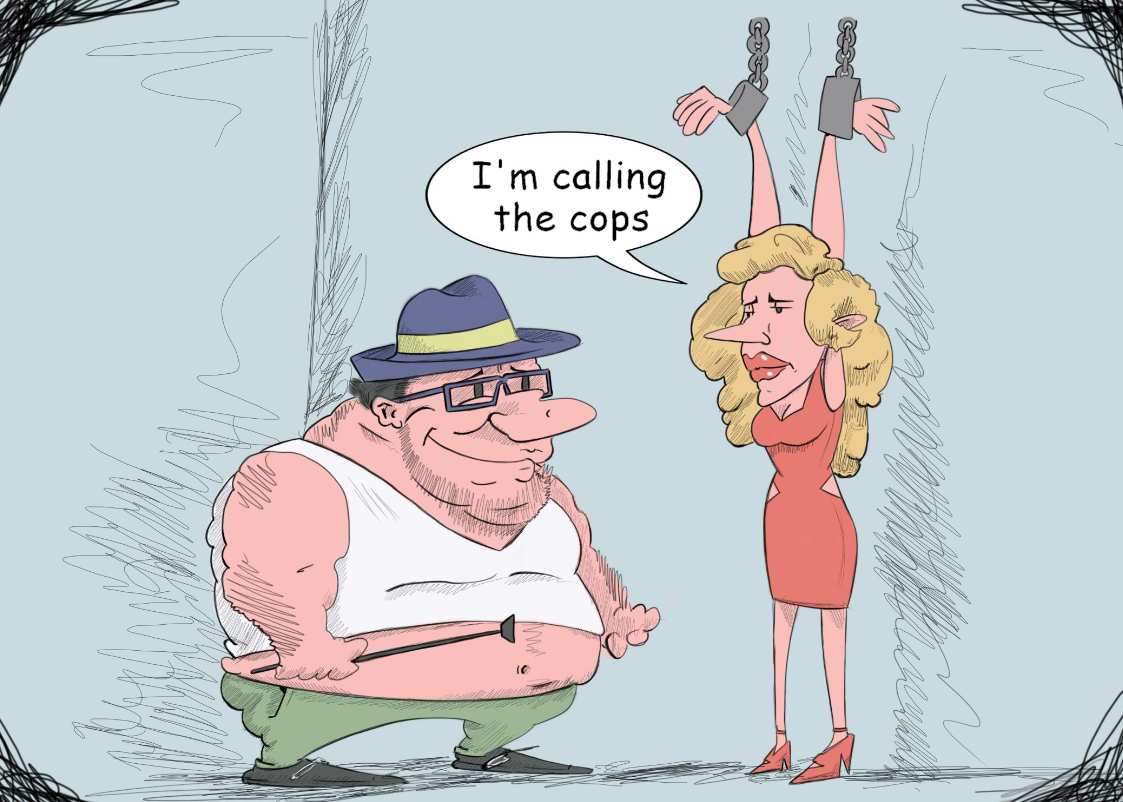Conjure a mental image of a tantalizing heartthrob: tall, broad shoulders, a chiseled face and a fancy, well-paying job. Now think of a creep: patches of hair creeping around his neck, a greasy hairline midway down his head, a katana in one hand and an anime body pillow in the other.
One of them is gross and the other is dreamy. They’re completely different men — except this isn’t always the case.
When we’re looking for relationships, especially romantic ones, we generally look for people we find attractive and have personal compatibility with. Some of today’s most enduring memes explain some of the worst traits men display in dating.
“Nice guys,” “incels” and “neckbeards” all come from a similar vein and similarly expose incredibly toxic male tendencies.
Nice guys are thus named for their assertion of being genuine “nice guys” who try to convince a woman all the other men around her are evil pigs. The nice guy is different, in his mind, and can treat the woman better than her boyfriend can. When rejected, the nice guy sheds his “nice” facade and completely and verbally assaults his victim.
Incels are the logical continuation of nice guys. Named for being “involuntarily celibate,” incels can’t get a date no matter what and believe the problem is with women and society at large, rather than with themselves. The incels detest all attractive women, called “Stacies,” for preferring popular stereotyped men, called “Chads.”
Neckbeards, so called for their ability to only grow patches of hair on their necks, are chivalrous samurai who see women as perfect beings to be protected from popular men. Characterized by an obsession with anime, My Little Pony and Mountain Dew, neckbeards often attempt to exert excessive control over the women in their life.
Unwarranted aggression, unfounded misogyny and overbearing obsession are not attractive qualities when looking for friends, much less a mate. But what if those qualities were displayed by an attractive man?
Lucky for us, we have the answer. Everyone and especially their mom has heard of the hit erotic novel “Fifty Shades of Grey,” a steamy love story about a gorgeous and wealthy man with a passion for sexual domination.
Consensual sexual acts involving domination are perfectly fine. However, the titular Christian Grey uses subtle manipulative tactics to push mild ingenue Anastasia Steele into his domination fantasy. The sex is consensual, but it’s arguable Grey tricked her into consent.
Lucky for Grey, he is a classic heartthrob — an independent man overflowing with money and good looks. Imagine if Grey were greasy and overweight with a dead-end job. The series would certainly not gain fame as the steamiest rape novel this century.
A softer side to Grey manifests as the trilogy continues, but such men are rarely this redeemable in real life, no matter whether or not the man is attractive.
To author E.L. James’s credit, the trilogy is exclusively a romanticized fantasy and is not to be taken as a dating manual. However, with over 73 million copies sold around the western world and then some, it’s impossible to avoid hordes of women misinterpreting the trilogy’s intent and expecting domineering sexuality from men.
Men share the blame, as 20th century media made for men depicts heroic characters as having little respect for women beyond treating them as “sexy lampshades.”
Take any character portrayed by Harrison Ford in the 1980s, for example. In “Star Wars: The Empire Strikes Back,” notorious scoundrel Han Solo continues to advance on Princess Leia despite her objections. He assures her she wants him. Even though he ends up being correct, their relationship is built on a disregard to consent.
The roguish archaeologist Indiana Jones uses his iconic whip to pull love interest Willie Scott back to him for a forced kiss after she walks away from him and demand she be brought home. Ex-cop Rick Deckard gaslights the android Rachel and physically bars her from leaving his home, then commands her to say she loves him and “make love” to him in “Blade Runner.”
Like “Fifty Shades of Grey,” these films are just fantasy. The problem with Ford’s characters is the young men who idolize and want to emulate his on-screen behavior. Unfortunately, each of his iconic characters commits an act running from implied sexual assault to explicit rape.
We’re all under the threat of violent, deranged men and media normalizing their behaviors. Sexual aggression is unacceptable from men both homely and handsome, and we must take care to not be swayed by depictions of such predators.
Kyle Richoux is a 20-year-old sociology junior from LaPlace, Louisiana.
Opinion: Romantic double standards dangerous to both men, women
By Kyle Richoux
February 10, 2019
double standard







